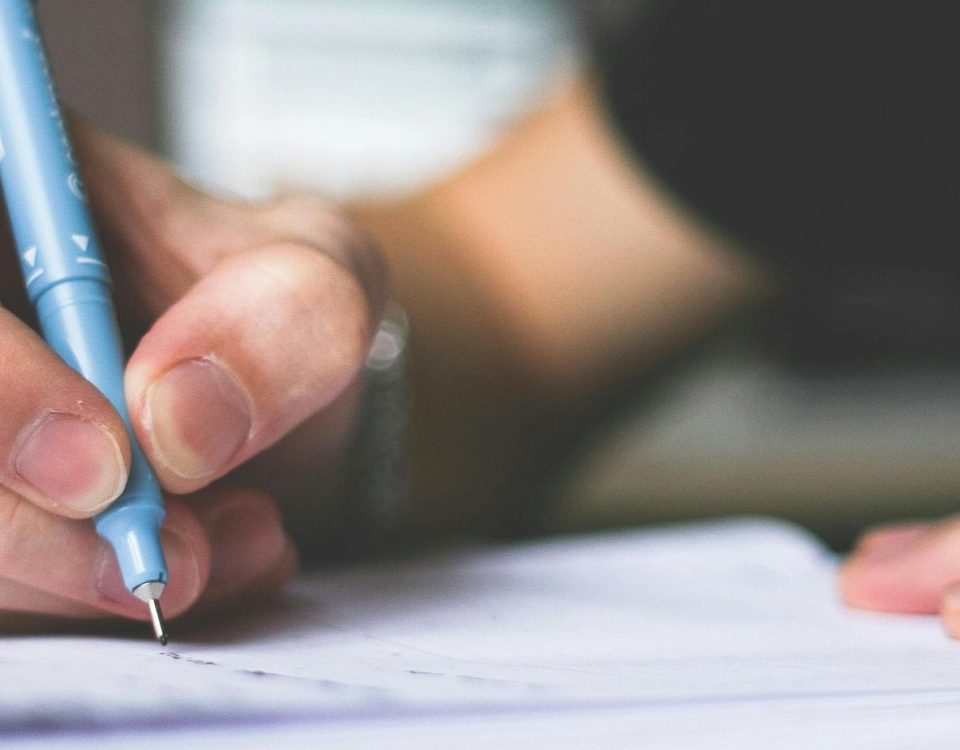Andy attended lessons at JP English since Year 9 and scored a 99.95 ATAR and became Dux of his cohort at Baulkham Hills High School. Here are his tips:
The HSC is a daunting task for many individuals, who believe their entire schooling life is building up to this one singular year of tasks, assignments and stress. Well, I’m here to tell you it doesn’t necessarily need to be like that, all you need is a few tricks, a simple mindset and you will be on your way to achieving your dream university course!
I’ll be going over various strategies I’ve employed over the past year to achieve my 99.95 ATAR, as well as some tips I have picked up that you could use.
Overcoming Stress and Building Support:
But, the first aspect I would like to emphasise is simply, to not overstress. Cliche advice. Yes. But there is an important reason as to why it is repeated over and over again, it is counterproductive. Far too many classmates and friends performed worse than what I knew their capabilities were. I was one of them in my first Year 12 task, as I performed well below my standards during those tests. But, I thought of how the ATAR was simply there to be an entry into university, that there were numerous pathways to eventually achieve what I set out to do. Try to think of a few yourself and remind yourself of them so that you don’t spiral down.
Another key component in this is having a strong support network, make sure you share how you are feeling with your family and friends if you feel comfortable doing so. They can act as a release for these thoughts and also play an important role in reminding you of those same calming thoughts.
Study Techniques
Now, let’s get onto the study techniques I employed to achieve my ATAR and overall results, do note that these techniques do revolve around the subjects I took, these being English Advanced, 4U maths, Physics and Accelerated Economics, achieving 2 state rank equivalent marks in Physics and Economics in the process, but they should be applicable to a range of subjects outside of the ones listed above.
Procrastination
This is a ubiquitous challenge that stifles many individuals’ learning efficacy. However, by breaking down the studying process into manageable steps proved to be a crucial strategy, rather than fixating on the daunting task of studying, start by preparing to study. Sitting on the table, open your laptop, taking your book out. This simple shift in mindset can significantly reduce the perceived time commitment, making it easier to ease into your study sessions.
Consistency is key to combating procrastination effectively. Creating an environment conducive to concentration involves silencing your phone and placing it out of immediate reach to minimise distractions. This sets the stage for entering a ‘flow’ state, where content understanding seems to progress at an accelerated pace. Focusing on a single subject for around an hour, instead of jumping between topics rapidly, contributes to sustained concentration. Interspersing focused sessions with short breaks, constituting a fifth of the study time, helps maintain overall focus. My study routine typically comprised two or three sessions, totaling two hours or less each day, with adjustments for tutoring and weekends.
Pre-studying
Now, for the actual studying part. Firstly, before delving into detailed study sessions, you would have to do a bit of pre-studying. Look through the syllabus, relying purely on prior knowledge, try to extract meaning from what is being asked from you. This shouldn’t take longer than an half an hour per module. Then, I would look at the textbook or any set of notes you have, briefly look over them and spot recurring concepts and then attempt to internalise them. The purpose of this stage is to basically build a framework of what you are going to learn, thereby allowing for easier understanding later on as you have the whole picture already and thus can create more connections as you have more preliminary knowledge.
It is important to note here that the only subject which I didn’t take notes for in Y12 was English, where I wrote some context down and various analysis of quotes. Beyond this, I relied on my tutors, good notes that were online, or wrote practice essays and constantly refined them, as I believed writing notes were a colossal waste of time which I could easily spend on other areas such as answering questions or googling various higher level concepts that enhanced my understanding.
Actual Learning
Engaging with the content actively is paramount to a deeper understanding, through a variety of sources whether that be the textbook, youtube videos or some simulators in the case of sciences. I would learn a couple of weeks before tutoring, which was a month ahead of school. This allowed for me to properly digest any foreign concepts, or be ahead of writing my essays and submitting them to JP’s once per week free marking of essays and feedback allowed me to consistently refine my essay. In this self-learning, ask questions about why or how this happens, the concepts interconnections and google if required. For maths I would think about the necessity of each step whenever there was a complex question to properly grasp what was in front of me. This allowed me to gain a deeper understanding of what I was learning and thus could apply it in a multitude of ways as I learnt it through multiple perspectives.
Teaching others is another powerful learning tool, as answering questions from friends or classmates challenges your understanding, exposes gaps in your knowledge that you may have not known otherwise, and hones your ability to explain complex concepts in simple terms as well as prioritising what information to provide to your classmates or friends, a valuable skill for exams.
The primary way I study maths is by constantly doing questions, whether it be from the textbook, my tuition or past papers. These different questions always enable me to think differently and provide more tools in my arsenal to answer non-routine exam questions that are becoming far more common in the HSC. This goes for the other subjects as well, continually doing past problems a week or two later than when you first learnt it so you check your understanding, engaging in active recall. Remember to not read your notes before answering these questions, do them blind.
For English, I first read over JP’s booklets to get a summary of the text and the relevant themes to look out for, as well as very critical/relevant sections within text that I can draw analysis from. Then I read the book, or watch the film over the holidays, then look at exemplar essays, where JP’s diverse and plentiful essays enabled me to gain a holistic critical understanding of the text. Essentially using them as springboards as I extract resonant themes and incorporate a personal perspective to draft a preliminary essay plan. The initial draft, much like this post, was intentionally not exhaustive. This allowed for flexibility, avoiding commitment to ideas that might not be feasible or effective. Subsequent refinement occurred over several weeks, incorporating feedback from tutors, friends, and teachers.
For English I would ensure to answer each ‘type’ of question, mainly by using the questions on the back of the JP booklets, and ensure that my essay could mould into these questions, sometimes simply suggesting on google docs the changes I would make to my base essay to answer the questions to maximise my time. I would intersperse full Ruse papers and NSB papers throughout this question selection period to refine my exam technique in harder papers. I would also look at exemplar responses to see their manner of writing and whether they had extra examples that I can utilise in my own responses, building my fundamental knowledge with more intricacies. For HSC, I simply use the HSC past papers as practice, along with tuition supplementary questions.
During the two weeks preceding exams, I would at max study 3 hours a weekday, an hour on a tuition day and 5-6 hours on weekends. Finally, the day before exams, I would simply relax, and not study, much like conditioning your body before running a marathon, you need your mind to rest to ensure the best performance the next day, and most importantly, have a good night’s sleep.






